Climate change: New report will highlight 'stark reality' of warming
By Matt McGrath
By Matt McGrath
BBC
Environment correspondent
Published21 hours ago
UK climate change protests
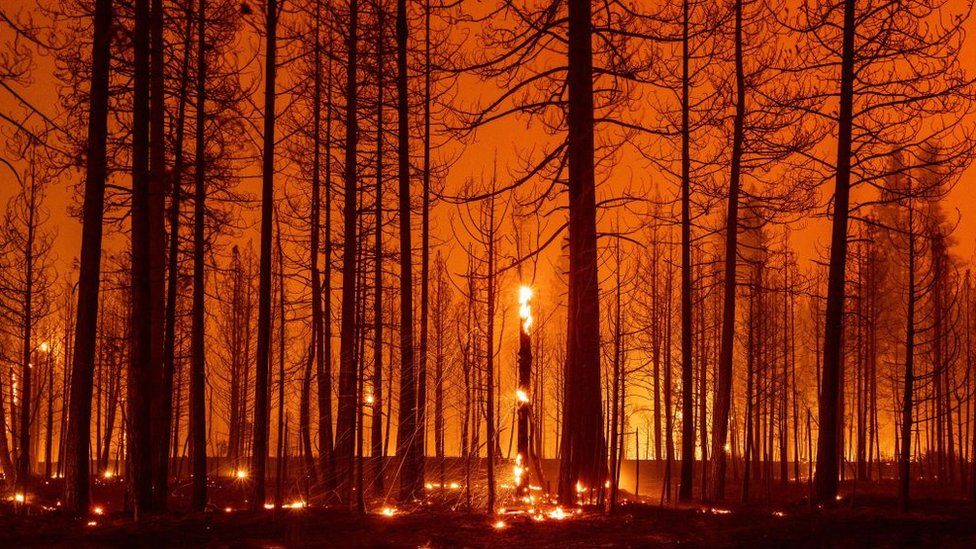
UN researchers are set to publish their strongest statement yet on the science of climate change.
The report will likely detail significant changes to the world's oceans, ice caps and land in the coming decades.
Due out on Monday, the report has been compiled by the Intergovernmental Panel on Climate Change (IPCC).
It will be their first global assessment on the science of global heating since 2013.
It is expected the forthcoming Summary for Policymakers will be a key document for global leaders when they meet in November.
The politicians are due to gather for a climate summit, known as COP26, in Glasgow.
World at risk of hitting temperature limit soon
Research shows millions more at risk of flooding
After two weeks of virtual negotiations between scientists and representatives of 195 governments, the IPCC will launch the first part of a three-pronged assessment of the causes, impacts and solutions to climate change.
It is the presence of these government officials that makes the IPCC different from other science bodies. After the report has been approved in agreement with governments, they effectively take ownership of it.
On Monday, a short, 40-page Summary for Policymakers will be released dealing with the physical science.
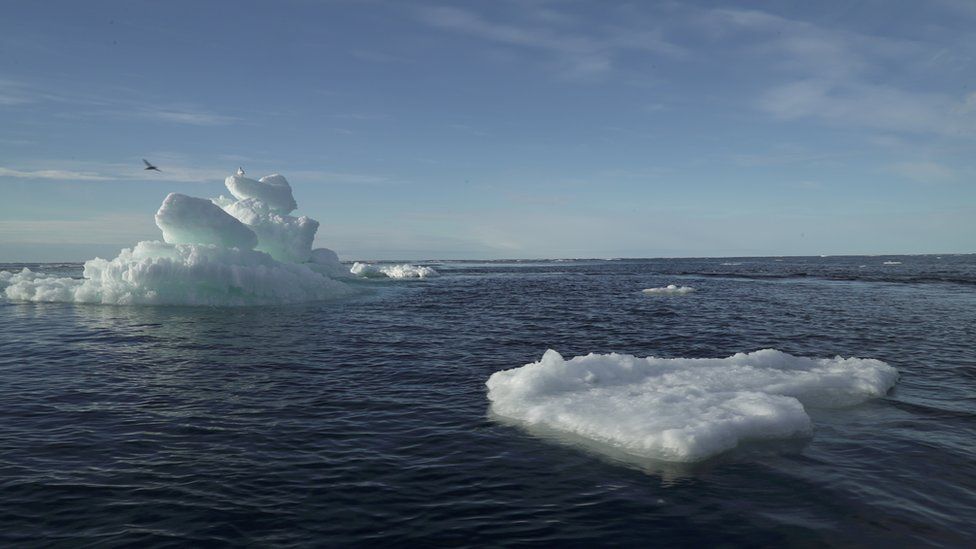
Environment correspondent
Published21 hours ago
UK climate change protests

UN researchers are set to publish their strongest statement yet on the science of climate change.
The report will likely detail significant changes to the world's oceans, ice caps and land in the coming decades.
Due out on Monday, the report has been compiled by the Intergovernmental Panel on Climate Change (IPCC).
It will be their first global assessment on the science of global heating since 2013.
It is expected the forthcoming Summary for Policymakers will be a key document for global leaders when they meet in November.
The politicians are due to gather for a climate summit, known as COP26, in Glasgow.
World at risk of hitting temperature limit soon
Research shows millions more at risk of flooding
After two weeks of virtual negotiations between scientists and representatives of 195 governments, the IPCC will launch the first part of a three-pronged assessment of the causes, impacts and solutions to climate change.
It is the presence of these government officials that makes the IPCC different from other science bodies. After the report has been approved in agreement with governments, they effectively take ownership of it.
On Monday, a short, 40-page Summary for Policymakers will be released dealing with the physical science.

The IPCC will also look at the state of the Arctic as the climate warms
It may be brief, but the new report is expected to pack a punch.
"We've seen over a couple of months, and years actually, how climate change is unfolding; it's really staring us in the face," said Dr Heleen de Coninck, from Eindhoven University of Technology in the Netherlands, who is a coordinating lead author for the IPCC Working Group III.
"It's really showing what the impacts will be, and this is just the start. So I think what this report will add is a big update of the state of the science, what temperature increase are we looking at - and what are the physical impacts of that?"
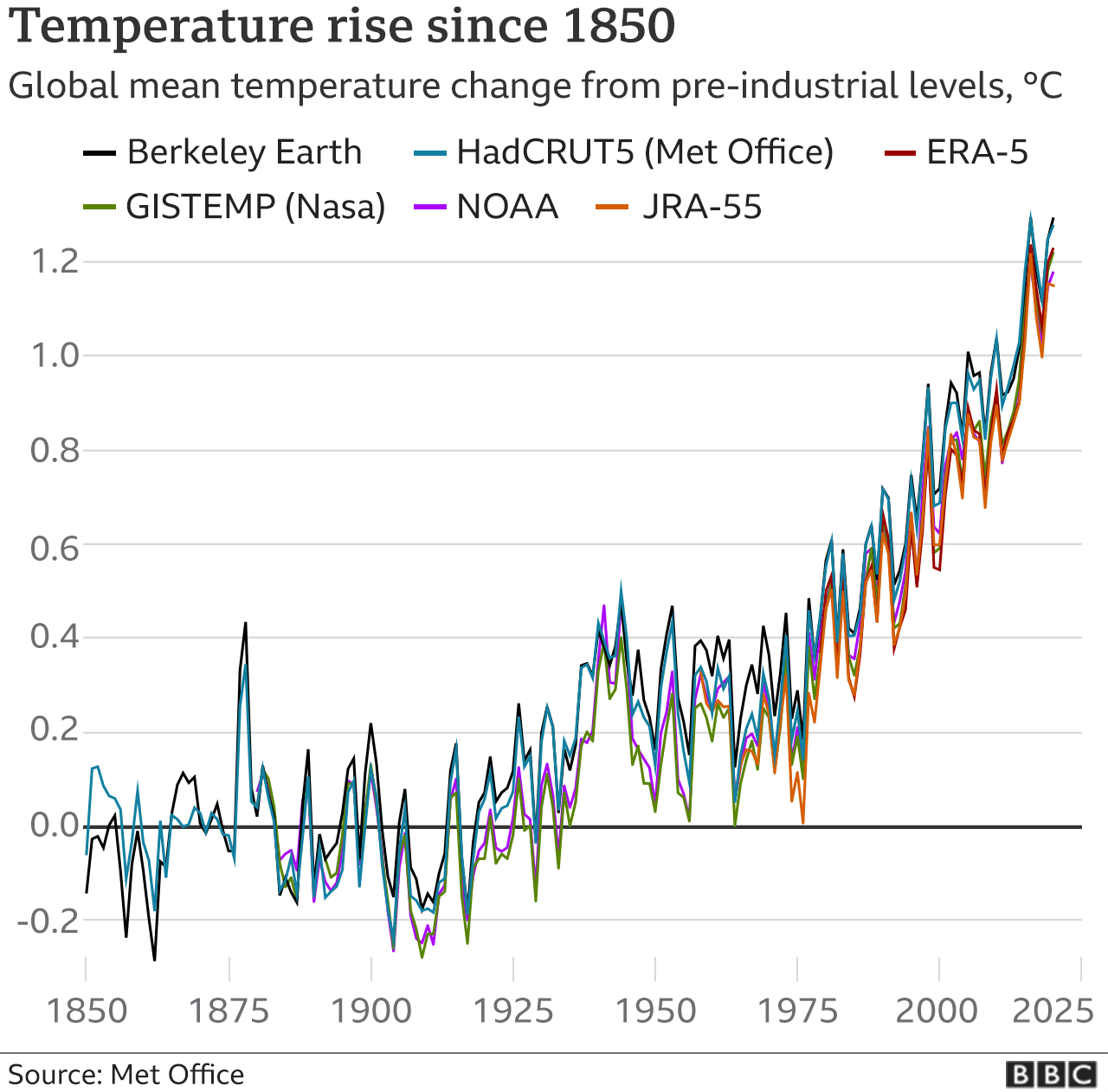
So what can we expect from the upcoming report?
According to many observers, there have been significant improvements in the science in the last few years.
"Our models have gotten better, we have a better understanding of the physics and the chemistry and the biology, and so they're able to simulate and project future temperature changes and precipitation changes much better than they were," said Dr Stephen Cornelius from WWF, an observer at IPCC meetings.
"Another change has been that attribution sciences have increased vastly in the last few years. We can make greater links between climate change and extreme weather events."
As well as updates on temperature projections, there will likely be a strong focus on the question of humanity's role in creating the climate crisis.
In the last report in 2013, the IPCC said that humans were the "dominant cause" of global warming since the 1950s.
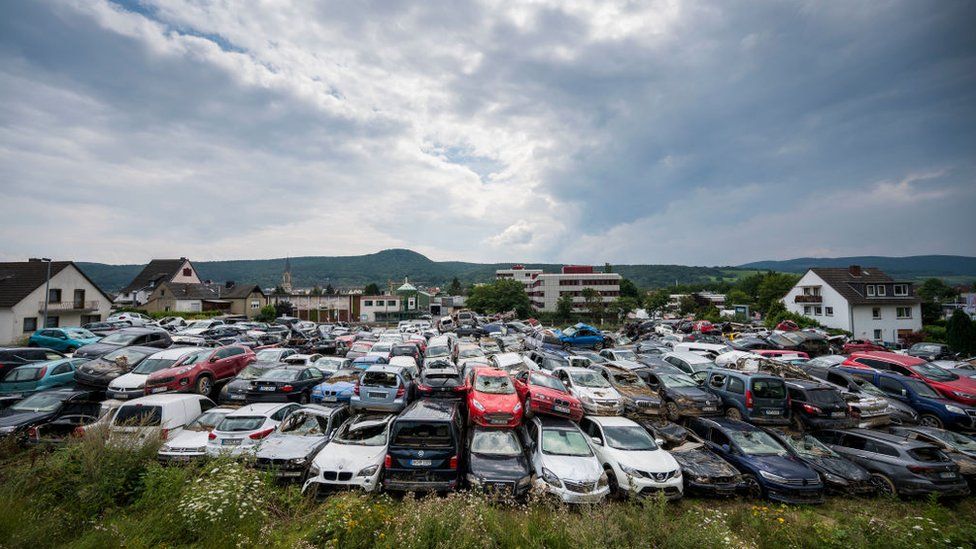
It may be brief, but the new report is expected to pack a punch.
"We've seen over a couple of months, and years actually, how climate change is unfolding; it's really staring us in the face," said Dr Heleen de Coninck, from Eindhoven University of Technology in the Netherlands, who is a coordinating lead author for the IPCC Working Group III.
"It's really showing what the impacts will be, and this is just the start. So I think what this report will add is a big update of the state of the science, what temperature increase are we looking at - and what are the physical impacts of that?"

So what can we expect from the upcoming report?
According to many observers, there have been significant improvements in the science in the last few years.
"Our models have gotten better, we have a better understanding of the physics and the chemistry and the biology, and so they're able to simulate and project future temperature changes and precipitation changes much better than they were," said Dr Stephen Cornelius from WWF, an observer at IPCC meetings.
"Another change has been that attribution sciences have increased vastly in the last few years. We can make greater links between climate change and extreme weather events."
As well as updates on temperature projections, there will likely be a strong focus on the question of humanity's role in creating the climate crisis.
In the last report in 2013, the IPCC said that humans were the "dominant cause" of global warming since the 1950s.

Cars wrecked in a flood in Germany
It's expected that this time the IPCC will also outline just how much of an influence humans are having on the oceans, the atmosphere and other aspects of our planetary systems.
One of the most important questions concerns sea-level rise. This has long been a controversial issue for the IPCC, with their previous projections scorned by some scientists as far too conservative.
"In the past they have been so reluctant to give a plausible upper limit on sea-level rise, and we hope that they finally come around this time," said Prof Arthur Petersen, from UCL in London.
As the world has experienced a series of devastating fires and floods in recent months that have been linked to climate change, the report will also include a new chapter linking extreme weather events to rising temperatures.

What is the IPCC?
The Intergovernmental Panel on Climate Change is a UN body set up in 1988 to assess the science around climate change.
The IPCC provides governments with scientific information they can use to develop policies on global heating.
The first of its comprehensive Assessment Reports on climate change was released in 1992. The sixth in this series will be split into four volumes, the first of which - covering the physical science behind climate change - will be published on Monday.

Many have welcomed this development.
"I remain hopeful that the scientific evidence will show the stark reality of a world already altered by our rapidly changing climate and will motivate all nations to deliver urgent emission reductions and the necessary amount of climate finance at COP26," said Mohammed Adjei Sowah, who is the mayor of Accra in Ghana and vice chair of the C40 group of cities.
"We only need to look out of our windows to see that the climate crisis is already here. Cities such as Accra and nations such as Ghana, which have contributed the least to greenhouse gas emissions, will experience many of the greatest impacts."
One of the things that gives the report additional muscle is the fact that it is not just one particular research paper on one topic - the reviewers consider all the research carried out on each area of focus.

It's expected that this time the IPCC will also outline just how much of an influence humans are having on the oceans, the atmosphere and other aspects of our planetary systems.
One of the most important questions concerns sea-level rise. This has long been a controversial issue for the IPCC, with their previous projections scorned by some scientists as far too conservative.
"In the past they have been so reluctant to give a plausible upper limit on sea-level rise, and we hope that they finally come around this time," said Prof Arthur Petersen, from UCL in London.
As the world has experienced a series of devastating fires and floods in recent months that have been linked to climate change, the report will also include a new chapter linking extreme weather events to rising temperatures.

What is the IPCC?
The Intergovernmental Panel on Climate Change is a UN body set up in 1988 to assess the science around climate change.
The IPCC provides governments with scientific information they can use to develop policies on global heating.
The first of its comprehensive Assessment Reports on climate change was released in 1992. The sixth in this series will be split into four volumes, the first of which - covering the physical science behind climate change - will be published on Monday.

Many have welcomed this development.
"I remain hopeful that the scientific evidence will show the stark reality of a world already altered by our rapidly changing climate and will motivate all nations to deliver urgent emission reductions and the necessary amount of climate finance at COP26," said Mohammed Adjei Sowah, who is the mayor of Accra in Ghana and vice chair of the C40 group of cities.
"We only need to look out of our windows to see that the climate crisis is already here. Cities such as Accra and nations such as Ghana, which have contributed the least to greenhouse gas emissions, will experience many of the greatest impacts."
One of the things that gives the report additional muscle is the fact that it is not just one particular research paper on one topic - the reviewers consider all the research carried out on each area of focus.

In Japan, misting sprays are used to keep people cool
"Sometimes the IPCC gets criticised for being focused on consensus, and it's suggested that this can weaken statements," said Dr Emily Shuckburgh, from the University of Cambridge.
"But the fact that it is a summary across multiple lines of evidence is incredibly powerful and incredibly useful."
One key question in the new summary will be about the 1.5C temperature target. The climate summit held in the French capital, Paris, in 2015, committed nations to try to limit the rise in global temperature from pre-industrial times to no more than 1.5 degrees.
And in 2018, the IPCC released a special report on keeping to this target.
What do world leaders need to agree to stop climate change?
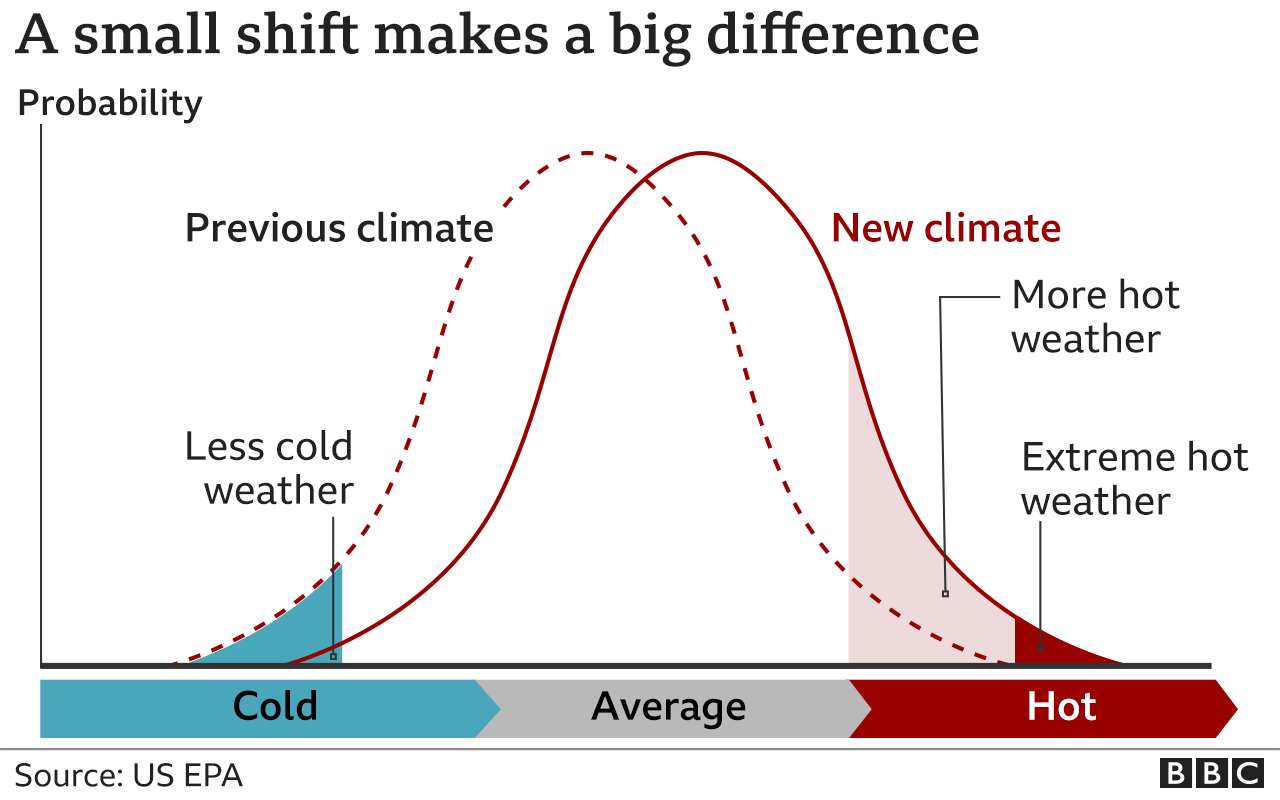
"That report showed very clearly was that there are clear, clear benefits to limiting warming to 1.5C and those benefits have only become clearer over the past three years," said Dr de Coninck, who was one of the key authors of that study.
"If this report says something about that temperature limit in relation to emissions and how they are developing, it will have a political influence on COP26 I think."
With just a few months to go until world leaders meet in Glasgow for the climate conference that is seen as the most important since the Paris agreement came into being in 2015, this new report will be required reading for all attendees.
"I think it's going to be a wake-up call, there's no doubt about that," said Richard Black, an honorary research fellow at the Grantham Institute at Imperial College London.
"But then again, so are some of the real world events that we're seeing around us at the moment."
Follow Matt on Twitter.
"Sometimes the IPCC gets criticised for being focused on consensus, and it's suggested that this can weaken statements," said Dr Emily Shuckburgh, from the University of Cambridge.
"But the fact that it is a summary across multiple lines of evidence is incredibly powerful and incredibly useful."
One key question in the new summary will be about the 1.5C temperature target. The climate summit held in the French capital, Paris, in 2015, committed nations to try to limit the rise in global temperature from pre-industrial times to no more than 1.5 degrees.
And in 2018, the IPCC released a special report on keeping to this target.
What do world leaders need to agree to stop climate change?

"That report showed very clearly was that there are clear, clear benefits to limiting warming to 1.5C and those benefits have only become clearer over the past three years," said Dr de Coninck, who was one of the key authors of that study.
"If this report says something about that temperature limit in relation to emissions and how they are developing, it will have a political influence on COP26 I think."
With just a few months to go until world leaders meet in Glasgow for the climate conference that is seen as the most important since the Paris agreement came into being in 2015, this new report will be required reading for all attendees.
"I think it's going to be a wake-up call, there's no doubt about that," said Richard Black, an honorary research fellow at the Grantham Institute at Imperial College London.
"But then again, so are some of the real world events that we're seeing around us at the moment."
Follow Matt on Twitter.
No comments:
Post a Comment